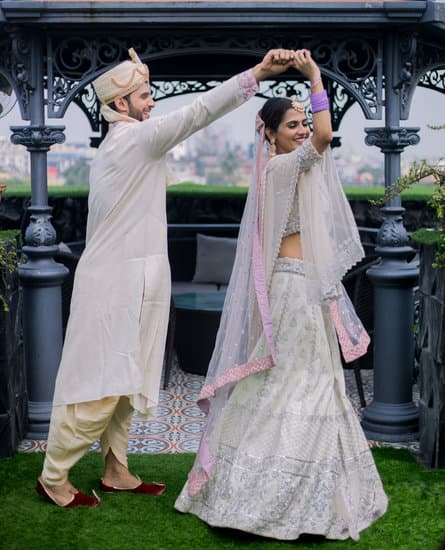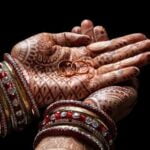The tradition of mothers walking down the aisle at weddings has been a long-standing practice that holds deep symbolism and significance. This age-old custom has evolved over time and has become an integral part of modern wedding ceremonies. The role of the mother of the bride or groom in this tradition is one that is filled with emotion, love, and a sense of tradition.
Throughout history, the presence of the mother walking down the aisle symbolizes her support and blessing for her child as they embark on this new chapter of their lives. However, as times have changed, so have wedding traditions and practices. Today, couples are exploring alternative ways to incorporate this tradition into their ceremonies – or choosing to forgo it altogether.
In this article, we will explore the evolution of wedding traditions and practices, including the symbolic significance of the aisle walk, cultural and regional variances in aisle-walking traditions, personal stories and experiences from mothers who have walked down the aisle, as well as advice and tips for mothers and couples considering this momentous tradition. Join us on this journey through time-honored customs and modern-day interpretations of the beloved tradition of mothers walking down the aisle.
The Evolution of Wedding Traditions and Practices
The tradition of walking mothers down the aisle has been a long-standing practice in many weddings. This tradition stems from the idea of the father giving away his daughter to her new husband, symbolizing a transfer of responsibility and care. However, as wedding traditions evolved over time, so did the practice of walking mothers down the aisle. In modern times, this moment has become more about honoring and including both parents in the processional.
The evolution of wedding traditions and practices has brought about a shift in how couples choose to incorporate their families into their special day. While some still opt for the traditional walk with just the father, many couples are now choosing to have both parents walk them down the aisle. This change reflects a modern understanding of family dynamics and a desire to honor both parents equally.
Furthermore, as attitudes towards marriage and family continue to evolve, so does the role of the mother of the bride or groom in modern weddings. Mothers are no longer simply passive participants in their children’s weddings; they are actively involved in planning, decision-making, and even officiating ceremonies. This evolution has contributed to a reimagining of traditional wedding practices, including who walks whom down the aisle.
The Role of the Mother of the Bride or Groom in Modern Weddings
Throughout history, one of the most traditional and symbolic moments in a wedding ceremony is when the mother of the bride or groom walks down the aisle. This act not only signifies the beginning of the wedding procession but also represents the support and blessing of the parent as their child embarks on a new chapter in life.
The tradition of walking mothers down the aisle dates back to ancient Roman times when it was customary for both parents to escort their daughter to her groom.
In modern weddings, the role of the mother of the bride or groom has evolved, and there are now various options and alternatives to the traditional aisle walk. Here are some ways in which mothers can be involved in their child’s wedding ceremony:
- Walking with both parents: Instead of just having the father walk the bride down the aisle, some couples opt for both parents to escort them. This represents a more inclusive approach and emphasizes the joint support and love from both parents.
- Being honored during a special moment: Couples may choose to dedicate a specific time during the ceremony to honor their mothers through a reading, song, or special ritual. This allows for a meaningful representation of their role without necessarily walking down the aisle.
- Actively participating in other wedding events: Mothers play an essential role in wedding planning and preparation. They may give speeches at rehearsal dinners, host bridal showers, or partake in other pre-wedding festivities that highlight their importance and involvement in their child’s big day.
Overall, while walking down the aisle remains a conventional practice for many couples, there are numerous meaningful ways for mothers to participate in modern weddings beyond this traditional gesture. It ultimately comes down to personal preferences and what feels most significant for both the couple and their families.
Alternatives to the Traditional Aisle Walk
In modern weddings, the tradition of the mother walking down the aisle has evolved, leading to a variety of alternatives to the traditional practice. While the classic procession of the mother of the bride or groom is still a common sight in many ceremonies, couples and their families are increasingly seeking out alternative ways to honor and include the mothers in the wedding.
Joining the Couple at the Altar
One alternative to the traditional aisle walk is for mothers to join their child and their future spouse at the altar. This symbolizes not only the union of two individuals but also the coming together of two families. It can be a powerful and emotional moment, allowing for a more inclusive representation of family unity in the ceremony.
Special Reading or Performance
Another alternative is for mothers to have a special role during the ceremony by doing a reading, performing a musical piece, or participating in another meaningful way that goes beyond walking down the aisle. This allows for personal expression and creativity while still honoring the important role that mothers play in their child’s life and their marriage.
Symbolic Gesture
Some couples choose to incorporate a symbolic gesture into their ceremony to honor their mothers. This could include presenting them with a special gift, having a moment of recognition during vows, or including them in a unity ritual. These gestures can be tailored to reflect the specific relationship between each mother and her child.
Discussion on the Significance and Symbolism of the Aisle Walk
The act of a mother walking down the aisle at a wedding holds deep significance and symbolism in many cultures and traditions. This moment symbolizes the transition and the giving away of the bride from her parents to her new spouse.
It is a representation of the mother’s support and blessing for her child as she embarks on this new chapter of her life. This tradition has been a meaningful part of weddings for generations, and its significance continues to be cherished by many families.
The Symbolism of the Aisle Walk
The aisle walk symbolizes the journey that the bride has taken from her childhood home to adulthood, and now onto marriage. It represents the loving support, guidance, and protection that her mother has provided throughout her life as she prepares to hand over these responsibilities to her new partner.
The act also serves as a beautiful way for both the bride and groom’s mothers to acknowledge their roles in raising their children as they take this step towards building their own family.
Emotional Significance
For many mothers, walking down the aisle with their daughter or son is an emotionally charged moment. It signifies not just a physical transfer but an emotional one as well – letting go of their child and trusting them into someone else’s care. This walk is a public display of love, trust, and unity between parent and child, reflecting the deeply-rooted emotions that are involved in this cherished tradition.
Cultural and Regional Variances in Aisle Walking Traditions
In various cultures and regions around the world, the tradition of mothers walking down the aisle at a wedding has significant variances. In some cultures, it is an expected and essential part of the wedding ceremony, while in others, it is not as common or traditional.
For example, in traditional Western weddings, it is customary for the mother of the bride to be escorted down the aisle by an usher before the ceremony begins. However, in other cultures such as African-American weddings, it is common for both the mother of the bride and groom to be walked down together.
In Jewish weddings, both parents traditionally walk their child down the aisle. This emphasizes that both families are involved in and support the marriage. Additionally, there are some regions where neither parent walks with their child down the aisle but instead stand with them under a traditional canopy during certain parts of the ceremony. These cultural and regional variances highlight how diverse and unique wedding traditions can be across different societies.
It is important for couples to consider these cultural and regional differences when planning their wedding ceremonies, especially if they come from different backgrounds or want to honor specific traditions. Understanding these variances can also lead to meaningful discussions about inclusivity and diversity not only within families but also within broader cultural contexts.
The significance placed on who walks down the aisle and how this practice is conducted varies widely among different societies and should be respected when planning a wedding ceremony.
| Culture/Region | Walking Down Aisle Tradition |
|---|---|
| Traditional Western Weddings | Mother of Bride escorted by usher |
| African-American Weddings | Mother of Bride & Groom walk together |
| Jewish Weddings | Both parents walk with child |
Personal Stories and Experiences of Mothers Walking Down the Aisle
The experience of mothers walking down the aisle at their child’s wedding is often an emotional and meaningful moment for both the mother and the couple getting married. This tradition has deep roots in many cultures and is seen as a symbolic gesture of the mother supporting her child as they embark on this new chapter in their life.
The act of walking down the aisle represents the mother giving her blessing and approval to the marriage, which can be a touching display of love and acceptance.
For many mothers, this custom holds great significance, as it is a visual representation of their support and love for their child. It also symbolizes the transition from childhood to adulthood, as the mother hands over her role as primary caregiver to her child’s spouse. Through this act, mothers express their pride, joy, and emotional connection to their children on one of the most important days of their lives.
Some mothers may choose not to walk down the aisle for various reasons such as physical limitations or personal beliefs. However, for those who do participate in this tradition, it is often a cherished memory that they carry with them for a lifetime. This tradition is not just about fulfilling a social norm but about celebrating family bonds and expressing love in a tangible way.
| Mother’s Aisle Walk Experience | Emotional Significance |
|---|---|
| A touching display of love and acceptance | Symbolizes transition from childhood to adulthood |
| Cherished memory that lasts a lifetime | Celebrates family bonds and expresses love |
Advice and Tips for Mothers and Couples Considering the Aisle Walk
In conclusion, the tradition of mothers walking down the aisle at a wedding is deeply rooted in history and symbolism. While it may have originated as a way to transfer the responsibility of the bride from her family to the groom, modern weddings have seen a shift in this practice. As weddings evolve, so do the roles and traditions surrounding them.
The evolution of wedding traditions and practices has opened up new possibilities for couples and their families. While some may choose to continue the tradition of having the mother walk down the aisle, others may opt for alternative ways to honor and include their mothers in the ceremony. Ultimately, the decision should be reflective of the values and desires of those involved.
Considering cultural and regional variances in aisle-walking traditions can also provide insight into how different societies place importance on this moment in a wedding. This can be an opportunity for couples to embrace their heritage or create new customs that resonate with their unique family dynamics.
At its core, the act of a mother walking down the aisle is a symbolic gesture of love, support, and transition, and how it is carried out is ultimately up to each individual couple and their families.
Frequently Asked Questions
Does the Mother Walk the Bride Down the Aisle?
In many traditional Western weddings, the father of the bride walks her down the aisle. However, in modern ceremonies, the role of walking the bride down the aisle can be filled by any significant person in her life, including her mother if she so chooses.
Does the Step Mother of the Bride Walk Down the Aisle?
The decision for the stepmother of the bride to walk down the aisle is ultimately up to the bride and her family. It depends on their individual family dynamics and relationships. Some brides may choose to have both their mother and stepmother walk down the aisle with them as a way to honor both women.
Does the Mother of the Bride Walk Down the Aisle UK?
In the UK, it is also common for the father of the bride to walk her down the aisle. However, similar to Western wedding traditions elsewhere, there is no strict rule about this and different families may have different customs or preferences when it comes to who walks the bride down the aisle.

I have been involved in marriages for over 20 years helping couples and singles understand more about them.





